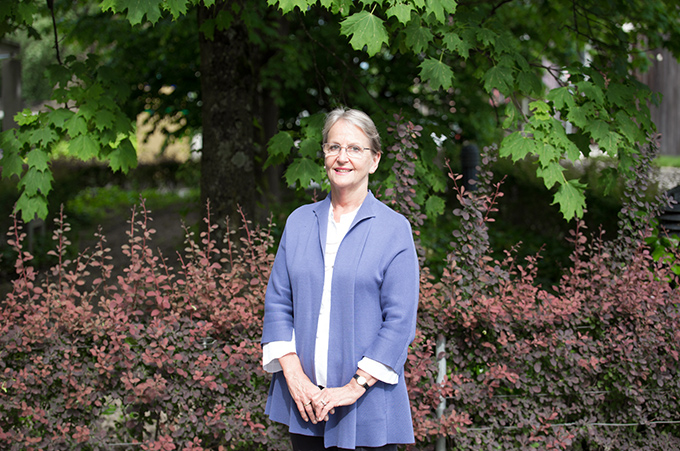Interview with Sally Fegan-Wyles, Executive Director of UNITAR
18 May 2015, Geneva, Switzerland - In this interview with International Geneva, Sally Fegan-Wyles tells us about UNITAR's work and impact, as well as about her career path.
UNITAR is a principal training institute of the United Nations. What does this mean?
UNITAR was established in 1963 when many countries were becoming independent. While these countries very much wanted to take their place in the United Nations to participate in the global decision-making and the shaping of the global agenda, they lacked the capacity to train their own diplomats. They also didn't have many subject experts in the areas covered by the UN. So UNITAR was envisaged initially, and it's still very much part of its agenda, to help countries build the capacity to participate effectively in the United Nations and in the global decision-making process.
Although UNITAR trains in many different areas, our niche is this training in multilateral diplomacy. We train to help the delegates, who are making global decisions that affect our everyday life, understand the substance of the issues they're dealing with. But we also help them to have the skills and confidence to negotiate with other countries and to effectively represent their country.
Having delegates feel the ownership over the decision-making processes is an essential part of keeping the UN relevant in the 21st century. And UNITAR is one of the few organizations in the UN that focus on that.
For instance, we have been working with many delegates in the negotiations for the Climate Change Conference that took place in Lima, Peru last year, and we will also be working with many delegates going into the Paris Climate Change Conference in December this year, which is going to be extremely important.
We've also done a series of workshops for delegates in New York and Geneva on the new emerging development agenda, the post-2015 development agenda, and we will do another series on those this year.
So that's the original training mandate of UNITAR. But our work has grown far beyond that. We also conduct trainings when the UN comes to an agreement on a topic which needs to be turned into action at the country level. For example, one of the things that we do is trainings on the chemical conventions. We are implementing a series of projects on the Minamata Convention on Mercury, which is quite technical and has a number of legal implications associated with it. Countries need to understand what it means to ratify the convention towards implementation. We train member states to help understand these conventions and turn them into action at the country level.
We do not offer training in all subjects. There are many subjects, which are very well covered by other parts of the UN, so we don't engage in those areas. But when there is no UN agency offering training in a given subject matter, we try to deliver.
Read the full interview on the International Geneva website.


